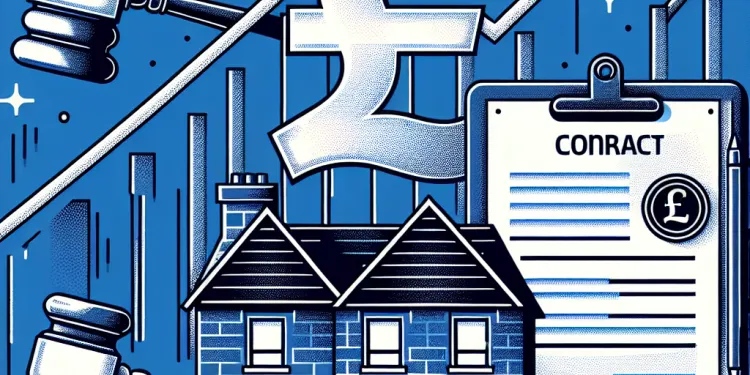
Find A Professional
More Items From Ergsy search
-
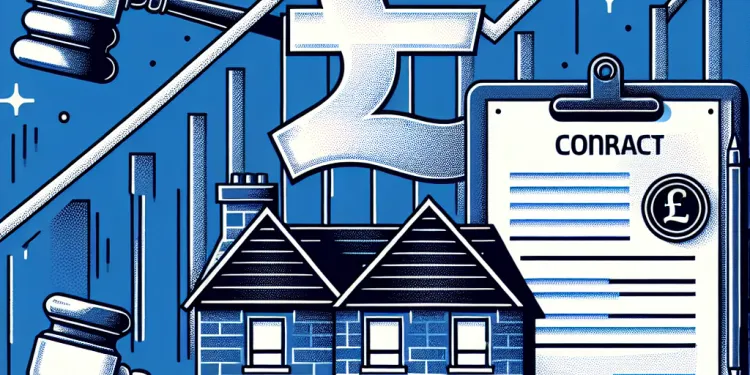
Are there changes to the eviction process?
Relevance: 100%
-

Has the notice period for eviction changed?
Relevance: 75%
-

What is a cryptocurrency exchange?
Relevance: 72%
-
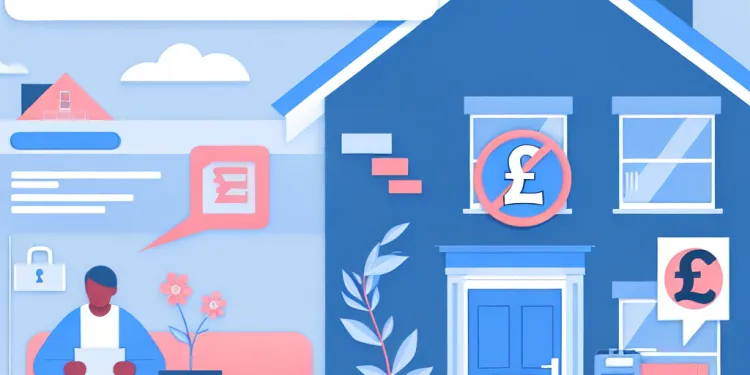
What can I do if my landlord wants to evict me?
Relevance: 70%
-

When will the new HMRC tax changes be officially confirmed?
Relevance: 69%
-

Can I stop an eviction if I catch up on rent payments?
Relevance: 67%
-

What if my circumstances change?
Relevance: 65%
-

What are the consequences of having an eviction on my record?
Relevance: 64%
-
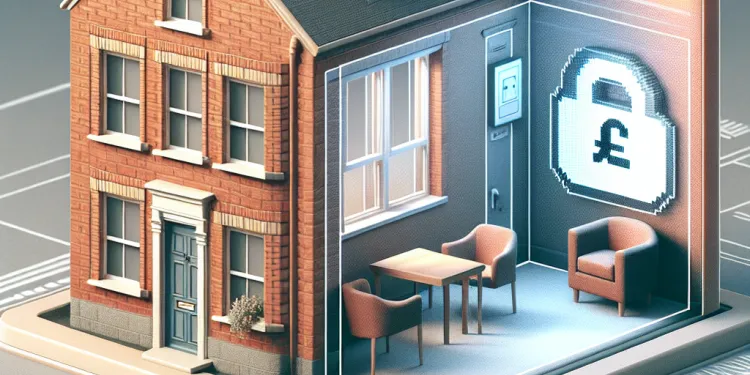
Can a landlord lock me out or remove my belongings to evict me?
Relevance: 63%
-
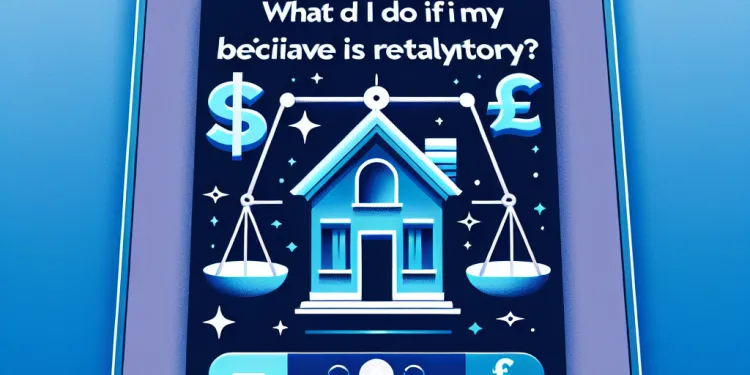
What can I do if I believe my eviction is retaliatory?
Relevance: 63%
-

What are my rights during the eviction process?
Relevance: 62%
-

What should I do if I receive an eviction notice from my landlord?
Relevance: 62%
-

How can I contest or challenge the eviction?
Relevance: 59%
-

Can I change my DVSA Theory Test date?
Relevance: 58%
-

How often do you need to change a stoma bag?
Relevance: 57%
-

How can I find detailed information about these changes once announced?
Relevance: 55%
-

What should business owners expect from income tax changes in 2026?
Relevance: 55%
-

Are there implications for student loan repayments with 2026 changes?
Relevance: 54%
-

Can my landlord evict me without providing a reason?
Relevance: 54%
-

What happens if I stay beyond the eviction deadline?
Relevance: 54%
-

Can my lender change my interest rate without notification?
Relevance: 53%
-

How soon should I prepare for the 2026 tax changes?
Relevance: 53%
-

How long do I have to move out after receiving an eviction notice?
Relevance: 52%
-

Does filing for bankruptcy stop an eviction?
Relevance: 50%
-

How does climate change affect pollen levels?
Relevance: 49%
-

What should I do if I notice changes during self-testing?
Relevance: 48%
-

Are there further changes expected after 2026?
Relevance: 48%
-

How will dividend taxation change in April 2026?
Relevance: 48%
-

Are there any planned changes to tax bands for April 2026?
Relevance: 48%
-

How might these changes affect taxpayers on PAYE?
Relevance: 47%
-

How can I prepare for an eviction court hearing?
Relevance: 47%
-

What are HMRC Income Tax Changes in April 2026?
Relevance: 47%
-

What are the HMRC income tax changes coming into effect in April 2026?
Relevance: 47%
-

Can SEND status change over time?
Relevance: 47%
-

Can eviction affect my credit score?
Relevance: 47%
-

How are self-assessment taxpayers affected by the 2026 changes?
Relevance: 46%
-

Can I appeal a court's eviction decision?
Relevance: 44%
-

Will there be a change in the additional rate threshold in April 2026?
Relevance: 44%
-

How often do wage rates change in the UK?
Relevance: 43%
-

Major Banks Announce Changes in Interest Rates: Are You Affected?
Relevance: 43%
Introduction
The eviction process in the United Kingdom has experienced significant changes, especially in recent years. These changes have been influenced by a range of factors, including legal reforms, social considerations, and responses to specific circumstances such as the COVID-19 pandemic. Understanding these changes is crucial for both landlords and tenants, as they impact rights, responsibilities, and procedural requirements.
Legal Reforms
Reforms in UK housing law have primarily focused on providing greater protection to tenants while also balancing the rights of landlords. The introduction of the Tenant Fees Act 2019 and changes to Section 21, which governs 'no-fault' evictions, are key examples. The government has proposed abolishing Section 21 evictions, which could fundamentally change how landlords regain possession of their properties.
Impact of the COVID-19 Pandemic
The COVID-19 pandemic led to temporary changes in the eviction process to protect tenants facing financial hardships. Evictions were banned through several government-imposed moratoriums, providing tenants with additional protection during the crisis. Notice periods for evictions were extended, and additional support was provided for those in rent arrears.
Current Procedures and Notice Periods
Currently, landlords are required to follow specific procedures when seeking to evict a tenant. Depending on the reason for eviction, different processes apply, including the use of either Section 21 or Section 8 notices. As of late 2023, notice periods have reverted to pre-pandemic durations, though landlords must still adhere to all procedural requirements and cannot evict without a court order.
Tenant Rights and Responsibilities
Tenants have rights that protect them from unfair eviction and ensure they have adequate time to find alternative accommodation. However, they also have responsibilities, including paying rent on time and adhering to the terms of their tenancy agreements. Landlords are required to provide clear reasons for eviction and, often, give tenants opportunities to rectify issues before proceeding with eviction.
Conclusion
The eviction process in the UK is subject to ongoing scrutiny and change. Both landlords and tenants need to stay informed about their rights and obligations under current laws. As legal reforms continue to evolve, particularly with potential changes to 'no-fault' evictions, staying updated on these developments remains essential. Seeking legal advice and consulting with relevant authorities can provide clarity and guidance in navigating the eviction process.
Introduction
In the UK, the rules about making people leave their homes have changed a lot. These changes happened for many reasons, like new laws, thinking about people’s needs, and things like COVID-19. It is important for both people who rent out homes and people who live in them to know about these changes. This is because these changes affect what they can and cannot do.
Legal Reforms
New laws now help people who rent homes more. But they also try to be fair to people who own homes. One important law is the Tenant Fees Act 2019. Another big change is about Section 21. This law lets landlords ask people to leave without giving a reason. The government might stop Section 21, which would change things a lot.
Impact of the COVID-19 Pandemic
Because of COVID-19, the rules about making people leave their homes changed for a while. People could not be asked to leave if they were having money problems because of the pandemic. The notice times before someone could be asked to leave were made longer, and extra help was given to people who could not pay rent.
Current Procedures and Notice Periods
Now, landlords must follow special steps to ask someone to leave a home. The steps are different depending on the reason. They can use Section 21 or Section 8 notices. As of late 2023, the notice times are back to what they were before COVID-19. But landlords still need a court's permission to make someone leave their home.
Tenant Rights and Responsibilities
People who rent homes have rights to protect them from being asked to leave unfairly. They should also have time to find a new place to live. But they must also pay rent on time and follow their rental agreements. Landlords need to give clear reasons if they want someone to leave, and they should allow tenants to fix problems first.
Conclusion
Rules about making people leave their homes in the UK are always changing. It is important for both tenants and landlords to know what they can and cannot do. Changes, like to 'no-fault' evictions, could happen, so staying informed is important. Getting advice from legal experts and checking with authorities can help you understand what to do next.
Frequently Asked Questions
What are the recent changes to the eviction process?
Recent changes to the eviction process may include new timelines, procedural steps, or tenant protections due to legislation or temporary measures such as pandemic-related moratoriums. Specific changes can vary by jurisdiction.
How have COVID-19 measures impacted the eviction process?
COVID-19 measures have led to temporary eviction moratoriums, requiring landlords to follow additional steps before proceeding with evictions, and offering rental assistance programs to tenants.
Are there new notice requirements for evictions?
Some jurisdictions have implemented new notice requirements, extending the time landlords must give tenants before filing for eviction, or adding requirements to inform tenants of available assistance.
Has the timeline for eviction proceedings changed?
In some areas, the timeline for eviction proceedings has been extended, providing tenants with more time to respond to notices or find alternative housing.
What protections exist for tenants facing eviction?
Protections for tenants may include extended notice periods, mediation services, access to legal aid, and state or federal assistance programs to help with back rent.
Are there new procedures landlords must follow before evicting a tenant?
Landlords may be required to follow new procedures like applying for dispute resolution services, proving compliance with local housing codes, or showing attempts to access rental assistance for tenants.
Has the process for contesting an eviction changed?
Tenants may have enhanced options for contesting an eviction, such as expedited hearings, access to legal representation, or new grounds for defense related to health and safety.
What resources are available for tenants to learn about eviction changes?
Tenants can access resources from local legal aid organizations, housing authorities, tenant unions, and government websites to stay informed about changes to eviction laws and processes.
Are there changes in the grounds for eviction?
Changes in the grounds for eviction may include restrictions on evictions for non-payment due to pandemic-related financial hardship, or requirements to demonstrate substantial breach of lease.
How do local laws impact the eviction process?
Local laws can significantly impact the eviction process, as each jurisdiction may have unique rules about notice periods, allowable reasons for eviction, and tenant protections.
Are eviction courts operating differently due to recent changes?
Eviction courts may have different operating procedures, including remote hearings, prioritization of certain cases, or different caseload management strategies due to recent changes.
Can landlords increase rent before evicting tenants?
Some jurisdictions have implemented rent control measures or restrictions on rent increases, particularly when a landlord is pursuing eviction for purposes other than non-payment.
What is the role of rental assistance in the eviction process?
Rental assistance programs can play a key role in preventing eviction, offering tenants financial support to cover past due rent and stabilizing housing situations.
Are there exceptions to eviction moratoriums?
Exceptions to eviction moratoriums may include cases of criminal activity, threats to health and safety, or significant property damage by the tenant, allowing evictions to proceed.
Has the appeal process for eviction decisions changed?
The appeal process for eviction decisions may include faster timelines, additional hearing opportunities, or new procedural requirements due to recent changes.
What happens if a tenant breaches their lease during an eviction moratorium?
If a tenant breaches their lease during an eviction moratorium, landlords may have limited options for eviction and are often encouraged to seek alternatives such as mediation or mutual agreements.
Do changes to the eviction process apply to all types of rentals?
Changes to the eviction process could apply broadly but may also include specific provisions depending on the type of rental, such as multifamily housing, single-family homes, or subsidized housing.
How does mediation fit into the new eviction process?
Mediation may be required or strongly encouraged as part of the eviction process, aiming to resolve disputes between landlords and tenants without formal eviction proceedings.
What documentation is required from landlords in the new eviction process?
Landlords might need to provide documentation such as a valid lease, proof of tenant violations, evidence of rental assistance outreach, and any necessary notices served to tenants.
How can tenants stay informed about any future changes to the eviction process?
Tenants can stay informed by regularly checking government and legal aid websites, subscribing to updates from housing organizations, and attending community meetings or forums on tenant rights.
What is different about eviction rules now?
Eviction is when someone has to leave their home. Recently, the rules about eviction have changed. Let's find out what is new.
- If you have trouble reading, ask someone to explain these rules to you.
- Use a dictionary or online tools to look up words you don't understand.
- Try reading with a friend or family member who can help you.
There are new rules about how evictions work. These rules might have new timeframes, steps to follow, or protections for people renting homes. These changes happened because of new laws or special rules, like the ones during the pandemic. The rules can be different depending on where you live.
How has COVID-19 changed being evicted from your home?
COVID-19 is a sickness that spreads easily. To keep people safe, rules were made about many things, including evictions. Evictions mean when someone has to leave their home because they cannot pay rent.
Here is how the rules changed:
- No evictions for a while: During the worst times, rules stopped people from being forced to leave their homes.
- Help with money: Some people got extra help to pay rent when they lost jobs due to COVID-19.
- Extra time: People got more time to pay rent before they had to move out.
If you want to know more or need help:
- Ask someone you trust to explain.
- Use simple apps or online tools that read text out loud.
Because of COVID-19, there are new rules to help people stay in their homes. Landlords have to do more things before they can ask someone to leave. People can also get help to pay their rent.
Are there new rules for telling someone to leave their home?
In some places, there are new rules for landlords. They have to wait longer before they can start eviction. Landlords also need to tell tenants where they can get help.
Have the rules for evictions changed?
In some places, the time it takes for an eviction to happen is longer now. This gives people who rent more time to answer to letters or find a new home.
How are renters protected if they have to move out?
There are some ways to help people who rent homes:
- Getting more time before they have to move out.
- Talking things over with someone who can help both sides.
- Getting a lawyer to help for free.
- Getting help from the government to pay for rent they owe.
Do landlords have new steps to follow before telling a tenant to leave?
Landlords have to follow rules when they want a tenant to move out. There might be new rules. Read letters from your landlord carefully. You can also ask someone you trust to help you understand.
Here are some things that can help:
- Ask a family member or friend to explain.
- Look for support groups that help with housing advice.
- Use tools like simplified reading apps to make reading easier.
Landlords might have to do new things. They could need to ask for help if there is a problem. They might have to show they are following local housing rules. They could also need to show they tried to get help for their renters to pay rent.
Has the way we fight an eviction changed?
If you think you might be asked to leave your home, you can get help. You can talk to a friend or ask someone you trust. They may help you understand your choices. You can also talk to a group that helps people with housing problems. They know how to help if you might lose your home. Use clear steps and take it slow.
If you rent a home, you might have more ways to stop an eviction. You could get quicker court meetings, a lawyer to help you, or new reasons to say you should not have to move out because your health or safety is at risk.
Where can you find help to learn about new eviction rules?
If you rent a home and want to know about eviction changes, you can:
- Look at easy-to-read guides online.
- Ask someone at your local council for help.
- Talk to a friend or family member.
- Watch videos that explain eviction rules.
- Use apps that give you help and ideas.
If you rent a home, there are places you can go for help. You can talk to legal aid offices, housing offices, tenant unions, and look at government websites. They can give you information about eviction laws and changes to them.
Have the rules for making people move out changed?
Reasons for being asked to leave a home might change. These changes could stop people from losing their homes if they can't pay because of money problems caused by the pandemic. Also, someone might have to show a big problem with following the rules of the lease before they are asked to leave.
Here are some things that might help:
- If you're having trouble reading, ask someone you trust to help you understand the text.
- Use a ruler or your finger to follow the words as you read.
- Break the text into smaller bits and take breaks when you need to.
How do local rules affect moving out of a home?
Local rules tell us how people might have to move out of their homes.
These rules are different in each area.
Some rules help people stay in their homes longer.
Other rules might ask people to leave their homes more quickly.
Check the local rules to understand how they will affect you.
You can ask a friend, family, or a helper to explain the rules.
Local laws are rules that can change how something is done. These laws can change how people are evicted. Eviction means someone has to leave their home because of a problem. Every place might have different rules about how long people have to find a new home, the reasons they can be asked to leave, and ways to protect people who rent homes.
Are eviction courts working in a new way now?
Eviction courts might work a bit differently now. They might have meetings on the computer, take care of some cases before others, or use new ways to handle their work because of recent changes.
Can landlords raise the rent before asking tenants to leave?
Some places have rules about how much rent can go up. These rules also help if a landlord wants to make you move out for reasons other than not paying rent.
If you find this hard to read, you can ask someone to help you understand the words or use a tool that reads text out loud.
How does rental help stop people from losing their homes?
Rental help programs can stop people from losing their homes. These programs give money to pay rent that is overdue. This helps people keep their homes safe.
Are there times when eviction rules don't apply?
Sometimes, a landlord can still ask a tenant to leave. This might happen if the tenant breaks the law, if they are dangerous to others, or if they damage the home a lot. Then, the landlord can make them move out.
Here are some ideas to help you understand this better:
- Use simple words when reading.
- Break the information into smaller parts.
- Ask someone to read it with you.
Has the way to appeal eviction decisions changed?
If a person has to leave their home, they can ask for help to stay longer. The rules for asking this have changed. These changes might mean:
- Things happen faster.
- There are more chances to talk about it.
- New rules to follow.
Tools like pictures, simple words, or help from a friend can make things easier to understand.
What if a tenant breaks their lease when evictions are paused?
If someone renting a home does not follow the rules in their lease, but evictions are currently on hold, here’s what might happen:
- Some rules may not be enforced until evictions start again.
- The landlord might still remind the tenant about the rules.
- It’s good to talk with the landlord or get advice from a support group if there are any problems.
Support tools:
- Use simple checklists to understand your lease rules.
- Talk with a friend or use online help to understand better.
If a person renting a home breaks the rules of their lease when they should not be evicted, the landlord might not have many choices to make them leave. People often say landlords should try to solve problems by talking or making friendly agreements.
Do the new eviction rules affect all types of homes?
This means: Do the new rules for making people leave their rented homes affect all kinds of rented places?
If you have trouble reading, try these ideas:
- Ask a friend or family member for help.
- Use a reading app or tool that reads text out loud.
- Break the sentence into smaller parts and read one part at a time.
The way evictions happen might change for everyone. But, there might be special rules for different types of homes. For example, apartments, houses, or homes with help to pay rent.
What is mediation in the new eviction process?
Mediation is a way to help two sides talk and agree. In the new eviction process, it can help landlords and tenants. They can talk to solve problems before someone has to leave their home.
If you find it hard to read, you can use tools like text-to-speech. These can read the words out loud for you. Another way to understand better is to ask a friend or family member to help explain.
Mediation can help when a landlord wants a tenant to leave. Mediation is like a friendly chat with someone helping both sides talk and solve problems. This way, they can try to agree without going to court.
What papers do landlords need for the new eviction process?
If a landlord wants to evict someone, they need to have certain papers. These papers show the reasons for eviction. The landlord must give these papers to the court.
Here is how they can do it:
- Write down why they want to evict.
- Give copies of notices they gave to the tenant.
- Show proof of tenant's late or unpaid rent, if any.
It is good to get help from someone who knows the rules. This can be a lawyer or a local help center.
Landlords have to show some papers. These might include: a lease to show someone lives there, proof if a tenant broke any rules, letters showing they tried to help with rent, and any important notes given to tenants.
How can people who rent a home know about changes to eviction?
If you rent a home, you might worry about being asked to leave. Here are some easy ways to know if the rules change:
- Talk to your landlord and ask if they have news.
- Visit websites that write about home renting rules.
- Join a group for people who rent homes. They can share news.
- Look at notices sent by the council or government.
You can also use tools to help you understand:
- Watch videos that explain in simple words.
- Listen to podcasts about renting a home.
- Use apps that send alerts about rule changes.
People who rent homes can learn important information by doing these things:
- Look at government and legal aid websites often.
- Sign up to get news from housing groups.
- Go to meetings in the community about tenant rights.
These steps can help you stay informed and understand your rights as a tenant.
Useful Links
- Ergsy carfully checks the information in the videos we provide here.
- Videos shown by Youtube after a video has completed, have NOT been reviewed by ERGSY.
- To view, click the arrow in centre of video.
- Most of the videos you find here will have subtitles and/or closed captions available.
- You may need to turn these on, and choose your preferred language.
- Go to the video you'd like to watch.
- If closed captions (CC) are available, settings will be visible on the bottom right of the video player.
- To turn on Captions, click settings .
- To turn off Captions, click settings again.
More Items From Ergsy search
-

Are there changes to the eviction process?
Relevance: 100%
-

Has the notice period for eviction changed?
Relevance: 75%
-

What is a cryptocurrency exchange?
Relevance: 72%
-

What can I do if my landlord wants to evict me?
Relevance: 70%
-

When will the new HMRC tax changes be officially confirmed?
Relevance: 69%
-

Can I stop an eviction if I catch up on rent payments?
Relevance: 67%
-

What if my circumstances change?
Relevance: 65%
-

What are the consequences of having an eviction on my record?
Relevance: 64%
-

Can a landlord lock me out or remove my belongings to evict me?
Relevance: 63%
-

What can I do if I believe my eviction is retaliatory?
Relevance: 63%
-

What are my rights during the eviction process?
Relevance: 62%
-

What should I do if I receive an eviction notice from my landlord?
Relevance: 62%
-

How can I contest or challenge the eviction?
Relevance: 59%
-

Can I change my DVSA Theory Test date?
Relevance: 58%
-

How often do you need to change a stoma bag?
Relevance: 57%
-

How can I find detailed information about these changes once announced?
Relevance: 55%
-

What should business owners expect from income tax changes in 2026?
Relevance: 55%
-

Are there implications for student loan repayments with 2026 changes?
Relevance: 54%
-

Can my landlord evict me without providing a reason?
Relevance: 54%
-

What happens if I stay beyond the eviction deadline?
Relevance: 54%
-

Can my lender change my interest rate without notification?
Relevance: 53%
-

How soon should I prepare for the 2026 tax changes?
Relevance: 53%
-

How long do I have to move out after receiving an eviction notice?
Relevance: 52%
-

Does filing for bankruptcy stop an eviction?
Relevance: 50%
-

How does climate change affect pollen levels?
Relevance: 49%
-

What should I do if I notice changes during self-testing?
Relevance: 48%
-

Are there further changes expected after 2026?
Relevance: 48%
-

How will dividend taxation change in April 2026?
Relevance: 48%
-

Are there any planned changes to tax bands for April 2026?
Relevance: 48%
-

How might these changes affect taxpayers on PAYE?
Relevance: 47%
-

How can I prepare for an eviction court hearing?
Relevance: 47%
-

What are HMRC Income Tax Changes in April 2026?
Relevance: 47%
-

What are the HMRC income tax changes coming into effect in April 2026?
Relevance: 47%
-

Can SEND status change over time?
Relevance: 47%
-

Can eviction affect my credit score?
Relevance: 47%
-

How are self-assessment taxpayers affected by the 2026 changes?
Relevance: 46%
-

Can I appeal a court's eviction decision?
Relevance: 44%
-

Will there be a change in the additional rate threshold in April 2026?
Relevance: 44%
-

How often do wage rates change in the UK?
Relevance: 43%
-

Major Banks Announce Changes in Interest Rates: Are You Affected?
Relevance: 43%